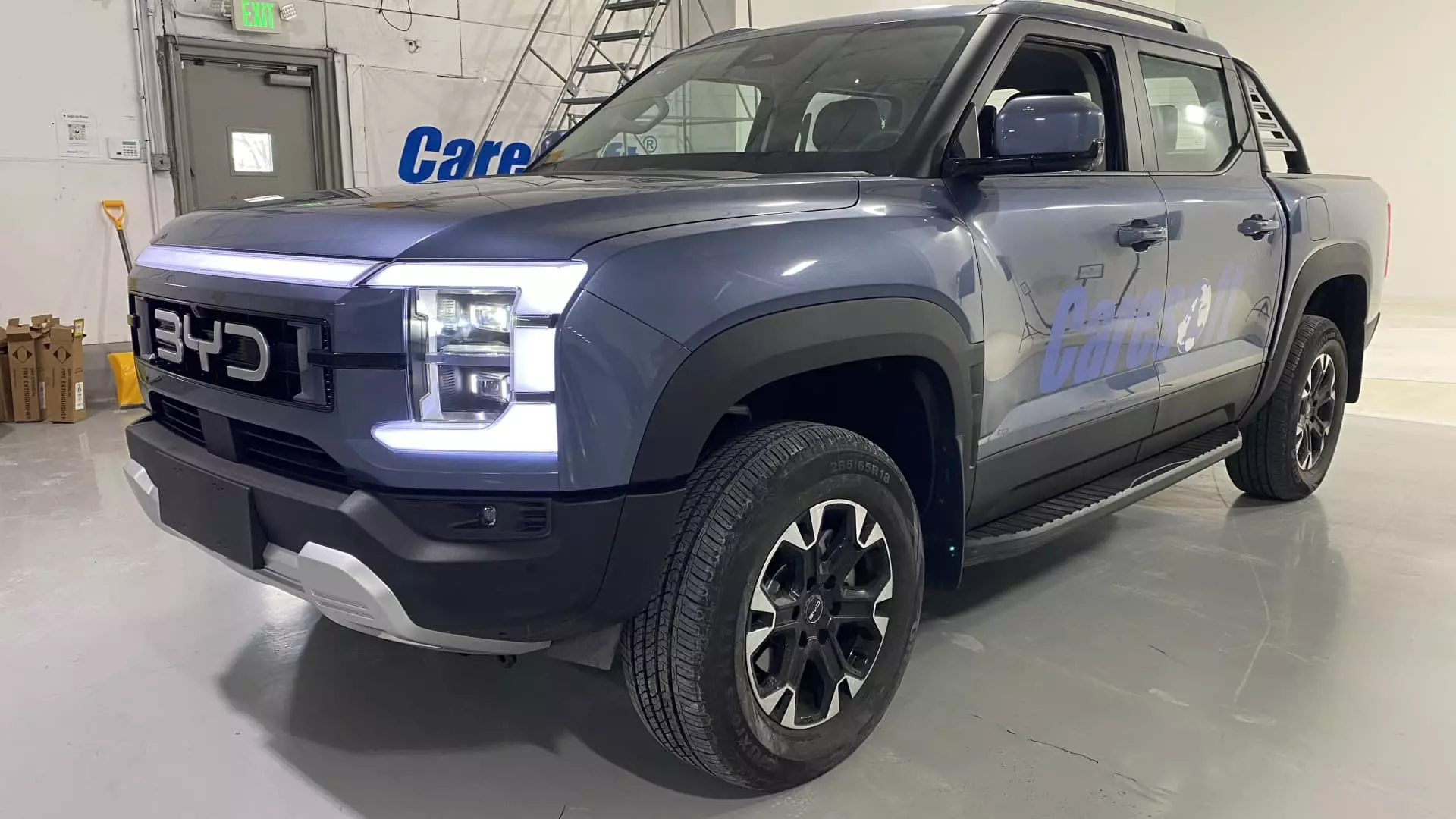The automotive landscape is evolving at a rapid pace, with Chinese manufacturers like BYD Auto emerging as key players on the world stage. BYD’s introduction of the Shark pickup truck serves as a testament to their growing ambitions and capabilities in a market dominated by established American and Japanese automakers. The concern is palpable among industry giants, as BYD’s Shark has the look and feel that could easily camouflage it as an American product. This resemblance highlights a broader trend of globalization in automotive design and engineering, where competition is intensifying.
Far from simply being another entry in the pickup segment, the Shark showcases BYD’s intention to challenge American dominance. Its design echoes that of American favorites such as the Ford F-150 and Explorer, cleverly leveraging familiar aesthetics to gain market acceptance. As the truck penetrates markets outside the U.S. — including Australia, Brazil, and Mexico — it poses a unique threat to traditional manufacturers who have long relied on their established brands for stability and profitability.
BYD’s strategy of entering various international markets exposes the vulnerability of American automakers. With their recent success in Mexico, where the Shark is priced competitively, the company is strategically positioning itself to capture significant market share. Notably, BYD has aggressively ramped up its vehicle exports, escalating from a mere 2% of total exports in 2022 to an expected 8% in 2024. Analysts predict this growth trajectory will continue, prompting a rise in competitive pressure on long-standing titans like Ford and Toyota.
As BYD intensifies its global expansion, the ramifications for American automakers could be severe. As sales of midrange models historically serve as profit generators, the potential for a well-priced alternative in the form of the Shark could lead to a battle for survival. Notably, with Chinese brands unburdened by the same regulatory and cost structures faced by their American counterparts, they can often offer lower prices without compromising on quality.
The BYD Shark enters the market equipped with a plug-in hybrid powertrain, a feature that combines the advantages of electric and traditional gasoline engines. This innovative approach could appeal to environmentally conscious consumers, particularly in regions where traditional combustion engines are scrutinized. The Shark’s ability to deliver a range of over 500 combined miles positions it as a compelling option for consumers who desire efficiency without sacrificing functionality.
However, early reviews suggest areas for improvement. While the Shark demonstrates solid acceleration, it falls short of outperforming competitors like Tesla’s Cybertruck or GM’s electric pickups. Further, some reviewers note that the handling and ride comfort do not yet measure up to the standard set by established vehicles in the U.S. However, the build quality reflects a commendable effort, although quirks in interior design could deter potential buyers.
As BYD prepares to expand its footprint in the pickup market, it faces the monumental task of not just maintaining but enhancing quality. Woychowski, a seasoned engineer with insights into the vehicle’s construction, suggests that while BYD has borrowed heavily from its American counterparts in design and engineering practices, unique shortcomings remain. From baffling interior layouts to an apparently over-engineered suspension system, attention to detail will be crucial.
Understanding and refining these elements will not only affect consumer perceptions of the Shark but also lay the groundwork for BYD’s long-term stability in the global market. Woychowski highlights the necessity of addressing these concerns to ensure that the Shark competes effectively, asserting that BYD should just “watch this space” as their vehicle evolves.
The rise of BYD and its Shark pickup truck underscores a significant turning point in the automotive industry. As competition intensifies and global markets continue to intertwine, American automakers must reassert their strengths while embracing innovation. The Shark may not yet dethrone the existing titans, but it represents a formidable, well-resourced contender with the potential to disrupt established norms.
The broader implication of this automotive transformation is clear: the advent of more competitive and diverse offerings will benefit consumers through improved products and value. The once-settled nature of regional automotive markets is on the brink of upheaval, with BYD and others paving the way for a new era where agility and responsiveness to market needs will dictate success. In this evolving landscape, the automotive giants will need to adapt or risk being outpaced by nimble challengers, marking a thrilling chapter in the history of global automotive competition.


Leave a Reply